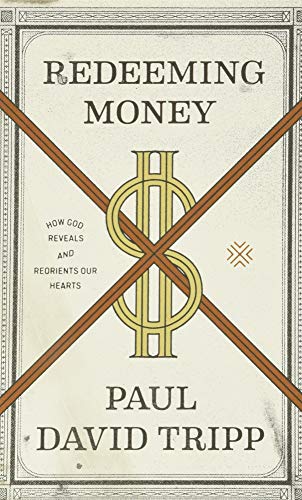Quotes about Money-Giving-Amount
God doesn’t look at just what we give. He also looks at what we keep.
The Treasure Principle, 2002, p. 63, Used by Permission from Eternal Perspective Ministries, www.epm.org. Get this book!
It seems fair to ask, “God, do You really expect less of me – who has your Holy Spirit within and lives in the wealthiest society in human history – than You demanded of the poorest Israelite?”… The tithe is God’s historical method to get us on the path of giving. In that sense, it can serve as a gateway to the joy of grace giving. It is unhealthy to view tithing as a place to stop, but it can be a good place to start… Tithing isn’t the ceiling of giving; it’s the floor. It’s not the finish line of giving; it’s just the starting blocks… True, some would be sacrificing more by giving 5% of their income than others would be by tithing or even giving 50 or 90%. Certainly the affluent should never “check off the box,” as if giving 10% automatically fulfills their obligation. The 90% belongs to God, too. He doesn’t look at just what we give. He also looks at what we keep… When people tell me they can’t afford to tithe, I ask them, “If your income was reduced by 10% would you die?” They say, “No.” And I say, “Then you’ve admitted that you can afford to tithe. It’s just that you don’t want to”… I have no problem with people who say “we’re not under the tithe,” just as long as they’re not using that as justification for giving less. But in my mind the current giving statistics among Christians clearly indicate most of us need a jump-start. If you find a gateway to giving that’s better than the tithe, wonderful. But if not, why not start where God started His First Covenant children?
The Treasure Principle, 2002, p. 61-65, Used by Permission from Eternal Perspective Ministries, www.epm.org. Get this book!
Over the years, I became aware of what seemed to be an emerging pattern in the relationship between income and attendance. It appeared that for a significant percentage of churches, one could take the average attendance and by adding three zeros, come up with a very close approximation of the annual income.
Although the tithe is not mentioned (in the New Testament), the giving of weekly offerings is (1 Cor. 16:2). And more importantly, it is generally the case that in the New Testament the obligations of the Old Testament legislation are heightened rather than lessened. That is, the law is interpreted in the fullest measure. So while we are not required to give a specific tenth of our income, it is hard to think of a normal Christian, blessed with the fullness of the Gospel of Jesus Christ, doing less. Under reasonable circumstances any true believer in Christ should give more than the tenth, for all we have is the Lord’s.
Tithing is not a New Testament concept, because it allows one to ignore how much one keeps.
In our culture, I personally believe this admonition should mean that we give a minimum of 10% of our gross income. If at all possible, this should be a starting point. If it is not possible, it should be our goal – one that we should ask God to help us reach as soon as possible.
Becoming a Spiritually Mature Leader, Quoted in: Leaders on Leadership, ed. George Barna, 1997, Gospel Light/Regal Books, Ventura, CA 93003, Used by Permission, p. 102.
The New Testament does not teach a doctrine of tithing (i.e., the mandatory giving of 10 percent of one’s income). Nor does Paul define what constitutes giving generously. He does not even provide a target number or general guidelines. The only rule is to give freely and generously as an expression of our continuing trust in God’s grace (9:5-8). Paul simply assumes that believers will give all they can to meet as many needs as they can in order to glorify God as much as they can.
It is strongly recommended, in light of the great giving requirements imposed on God’s ancient people Israel, that everyone should at least consider the first 10 percent as a starting point in giving – a minimum.
Disciplines of a Godly Man, Crossway Books, 1991, p. 188. Get this book!
I do not believe one can settle how much we ought to give. I am afraid the only safe rule is to give more than we can spare. In other words, if our expenditure on comforts, luxuries, amusements, etc., is up to the standard common among those with the same income as our own, we are probably giving away too little. If our charities do not at all pinch or hamper us, I should say they are too small. There ought to be things we should like to do and cannot do because our charitable expenditure excludes them.
Those who give much without sacrifice are reckoned as having given little.
How much should you give of your income? God lays down no rule concerning this point. We should give cheerfully and not because it is required. But if even Jacob, with the first dawning of spiritual light promised to God the tenth of all, how much should we believers in the Lord Jesus do for Him? (See Genesis 28:22). If the love of Christ causes us to give, we will have this verse fulfilled in our experience. The Lord will abundantly repay us, and in the end we will find that we are not losers even in temporal things.
The Autobiography of George Muller, 1984, p. 195-196. All quotations taken from books published by Whitaker House are used with permission of the publisher. Whitaker House books are available at Christian bookstores everywhere. Get this book!
God judges what we give by what we keep.
It is admitted universally that the payment of tithes or the tenths of possessions for sacred purposes did not find a place within the Christian Church during the age covered by the apostles and their immediate successors (J.R. Willis).
So the reason the tithe is not commanded by Paul is not that Jesus abolished it. He didn’t, He approved it (Lk. 11:42). Nor was the reason that we should no longer give proportionately. We should “as we may prosper” (1 Cor. 16:2). The more you make the more you give. Nor was it that the need of the ministry is less in the New Testament. It’s not. Teaching, preaching, caring and missions all take money… The reason that Paul did not use the command to tithe in order to enforce his teaching about giving was that he wanted to emphasize willingness over constraint, and liberality over limitation, and a sense that all our money is God’s not just a tenth.
If we are going to “set aside” the command to tithe…because it feels slavish and legal, and because we want to promote freedom in our giving, then let us beware of jumping out of the frying pan of legal slavery to a command into the fire of carnal slavery to fear and greed. Sin lurks at both doors.
My take on tithing in America is that it’s a middle-class way of robbing God. Tithing to the church and spending the rest on your family is not a Christian goal. It’s a diversion. The real issue is: How shall we use God’s trust fund – namely, all we have – for His glory? In a world with so much misery, what lifestyle should we call our people to live? What example are we setting?
It is never said in so many words that we are to give 10% in the NT, though it is worth pointing out that the tithe was not original to Moses and the Mosaic law. It is found early in the life of God’s people. Abraham paid a tithe to Melchizedek in Gen. 14, if you remember. There is some case there for arguing that the tithe is basic to human life as God ordered it. But, if you are not persuaded of that, remember that if the 10th is not our rule any longer, surely in the NT we are not going to argue that we should give less! We are not going to argue that having seen the Lord on the cross, having witnessed the resurrection, knowing as we now do what price was paid for our redemption, we should give less than they did in the OT? Surely not. Jesus, remember, makes a point of calling attention to the generous gift of a poor woman when she was worshipping at the temple and Paul makes a good deal of the sacrificial financial stewardship required of Christian believers. Now, perhaps we like the tithe after all!
The amount of your giving may not be large in comparison to someone else’s gift, but if your heart is generous, and your gift is sacrificial, God is pleased.
Copied from: Pastor Driven Stewardship: 10 Steps to Lead Your Church to Biblical Giving by Rod Rogers, © 2006, p. 56. Used by permission of Rod Rogers – www.DynamicGiving.com. All rights reserved.
I believe in using the giving of a tithe as a guideline for leading God’s people into faithful stewardship. I’m convinced that we should start by giving a minimum of ten percent… This is not a biblical command, but I believe it is a reasonable guideline that will enable us to obey the New Testament principle of proportionate giving.
Copied from: Pastor Driven Stewardship: 10 Steps to Lead Your Church to Biblical Giving by Rod Rogers, © 2006, p. 66. Used by permission of Rod Rogers – www.DynamicGiving.com. All rights reserved.
The 10 percent figure is not a biblical rule, but a minimum guideline for obeying New Testament principles for giving. The key to obedient stewardship in either case is that the amount you give be sacrificial, generous and proportionate to the level at which God has prospered you. If giving 10 percent of your net income doesn’t meet these standards, just increase the percentage until it does.
Copied from: Pastor Driven Stewardship: 10 Steps to Lead Your Church to Biblical Giving by Rod Rogers, © 2006, p. 68. Used by permission of Rod Rogers – www.DynamicGiving.com. All rights reserved.
Partial obedience is disobedience. And for the vast majority of God’s people, anything less than 10 percent is partial obedience.
Copied from: Pastor Driven Stewardship: 10 Steps to Lead Your Church to Biblical Giving by Rod Rogers, © 2006, p. 125. Used by permission of Rod Rogers – www.DynamicGiving.com. All rights reserved.
The sad reality is that:
1. In 2004, only 4 percent of Americans gave 10 percent or more to their church (Barna 2005).
2. Only about 30 to 40 percent of church members even use a percentage guide (Grimm 1992, 44).
3. Only about 50 percent of members even know what percentage of income they give (Grimm 1992, 44).
Copied from: Pastor Driven Stewardship: 10 Steps to Lead Your Church to Biblical Giving by Rod Rogers, © 2006, p. 67. Used by permission of Rod Rogers – www.DynamicGiving.com. All rights reserved.
Is it permissible to tithe? Not only is it permissible, I would strongly recommend and urge you to do so. In choosing to give 10% of our income to the Lord, we are honoring a God-given, Old Testament principle. In the absence of a prescribed percentage for giving in the New Testament, why not adopt the Old Testament pattern? This does not mean you are sinning if you don’t. To give only 8% or to give 12% is equally permissible. Not to give at all, or to give disproportionately to your income (which is the case with most Christians today), or to give grudgingly, is indeed sin. Let us be joyful and generous in our giving. After all, everything we own belongs to God anyway!
When we come to the end of life, the question will be, “How much have you given?” not “How much have you gotten?”
He, who gives what he would as readily throw away, gives without generosity; for the essence of generosity is in self-sacrifice.
Give according to your income, lest God make your income according to your giving.
Your standard of giving is more important that your standard of living.
A Gallup Poll from October 1988 shows that the more money Americans make, the less sacrificial our giving becomes. Those making less than $10,000 per year give an average of 2.8 percent of their income each year to churches, charities, and other nonprofit organizations. Those making $10,000 to $30,000 give an average of 2.5 percent, those making $30,000 to $50,000 give 2.0 percent, those making $50,000 to $75,000 give a total of only 1.5 percent of their income to their church and all other nonprofit groups.
Plain Talk, USA Today, December 23, 1988Quoted in: Spiritual Disciplines for the Christian Life, 1991, p. 151, Used by permission of NavPress www.nav.press.com, All rights reserved. For more information please see the website: www.BiblicalSpirituality.or
The more you prosper, the higher should be the proportion of your giving. There is no percentage goal in giving. Giving 10 percent of your gross income does not necessarily mean you have fulfilled the will of God. That’s not a ceiling of giving to stop at, but a floor to move from.
Quoted in: Spiritual Disciplines for the Christian Life, 1991, p. 151, Used by permission of NavPress – www.nav.press.com, All rights reserved. For more information please see the website: www.BiblicalSpirituality.org. Get this book!


















